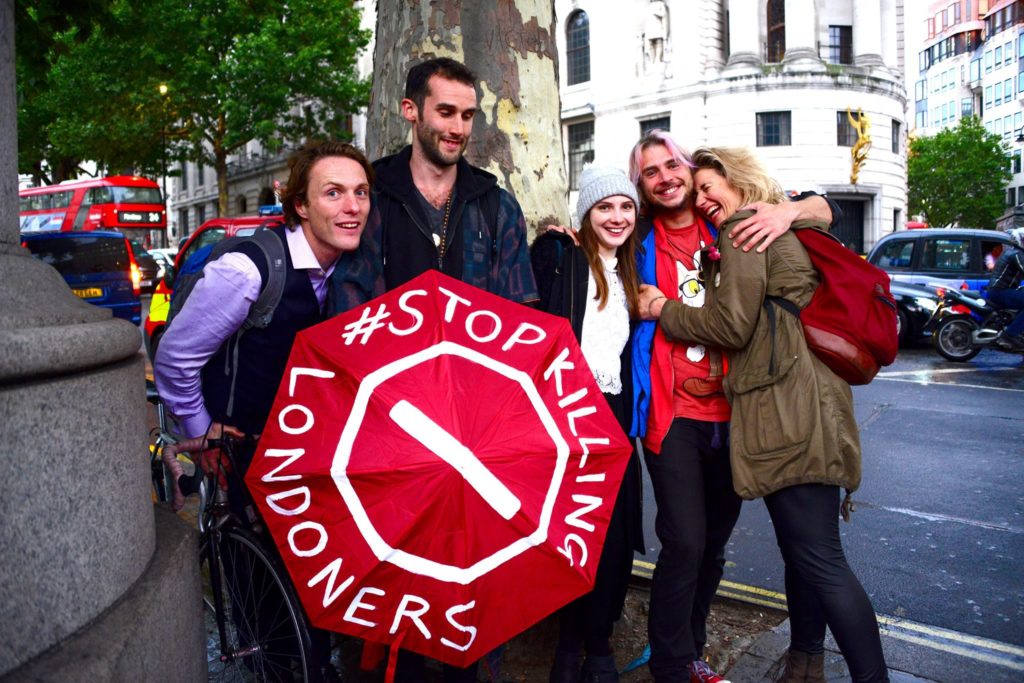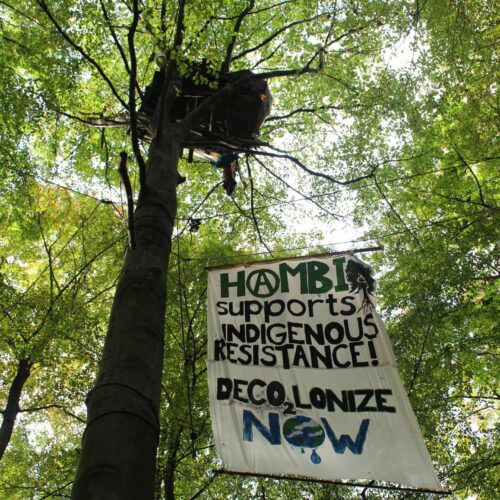Perhaps you’ve seen pictures of Xingtai, China’s industrial steel city, or more accurately, struggled to see anything amid the palpably thick layers of noxious air pollution. An alarming statistic correlates human disease and mortality to the air we breathe – it is estimated that 18,000 people die every day worldwide as a result of air pollution. For the UK alone, air pollution is responsible for 40,000 deaths a year, and what is being done about this?
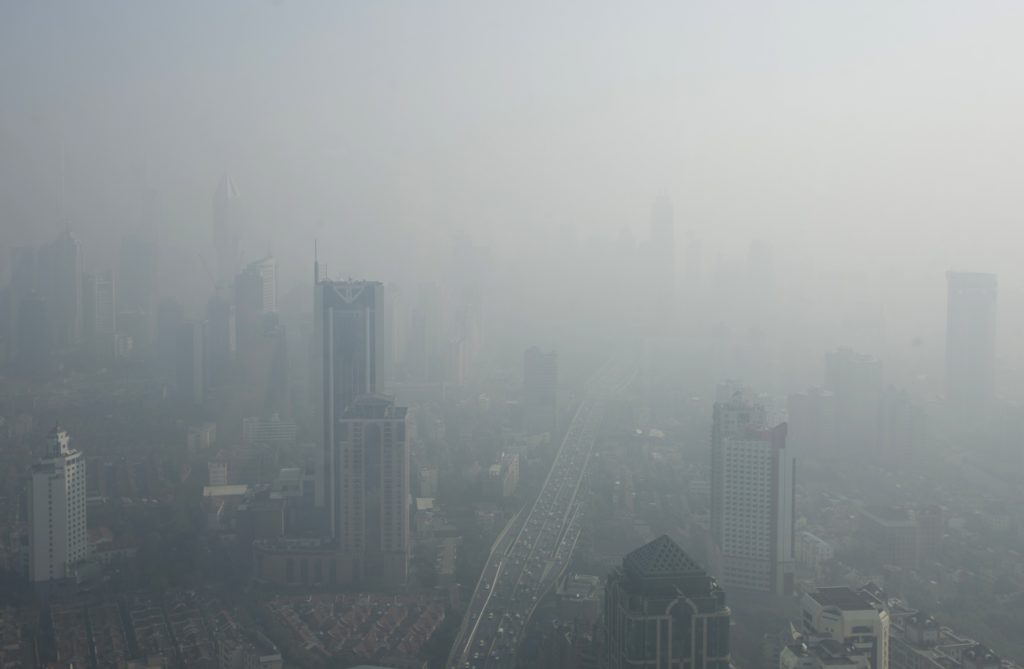
The mayor of London, Sadiq Khan, has called for a new Clean Air Act that would enshrine a right to clean air. But so far it is all talk and no action.
Meanwhile, a recent Lancet Commission on pollution and health, points out that air-quality improvements not only save lives, but have other benefits. Over nearly half a century in the US, every $1 invested in improving air quality has yielded an estimated $30 in additional population health benefits. Shifting to 100% renewable energy by 2050 would prevent 90 million premature deaths between 2017 and then, according to research by Mark Jacobson at Stanford University.
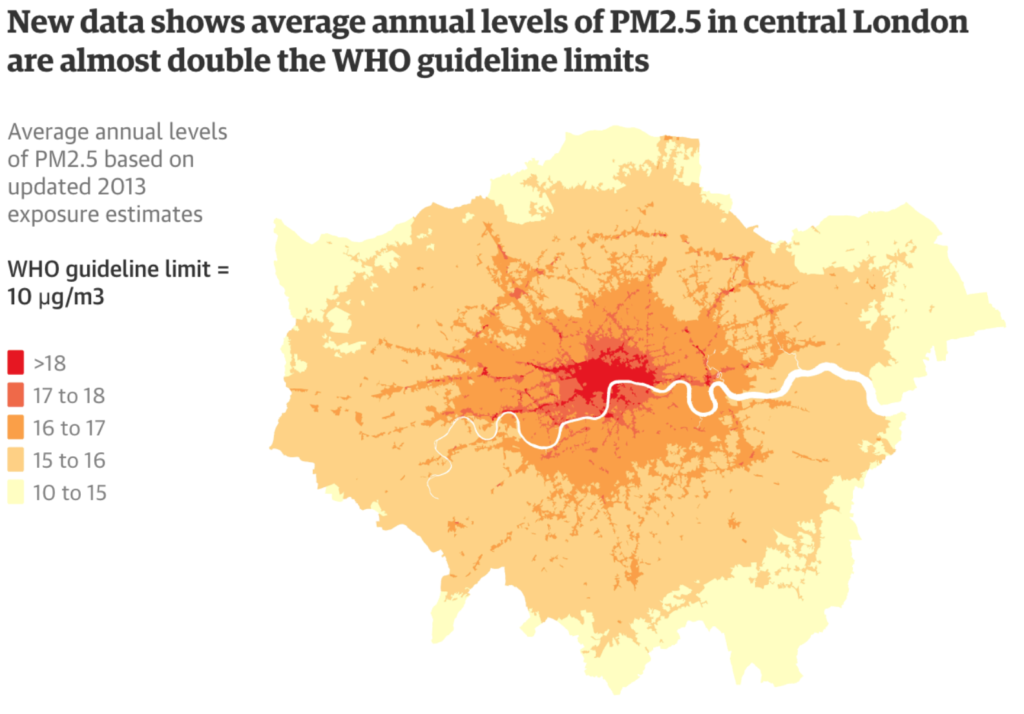
Some Londoners will not sit around idly while the political leadership takes their sweet, bureaucratic time. Roger Hallam, is one such activist. He is a PhD researcher on effective radical campaign design at King’s College London and he has been an organic farmer for over twenty years. Roger is a scholar of Saul Alinsky’s work, of Rules for Radicals fame, and how it can be brought to a contemporary context. He works on design of digitally enhanced political resistance and empowerment strategies for activists, and he has built the immensely eye-grabbing “Stop Killing Londoners” campaign. Roger and I catch up in the Quaker Cafe right by Euston station, and he tells me all about what he and his crew are planning as well as the tactical inspiration behind it all. He says “the idea previously held is you do something, try and get some publicity and try and not get arrested or sent to prison. But we are going back to a sort of Gandhian philosophy where you court the idea of getting arrested and going to prison because that embarrasses the opposition”, and I am elated though hardly surprised to see him quoted a month later in a Guardian article on ‘Stop Killing Londoners’.
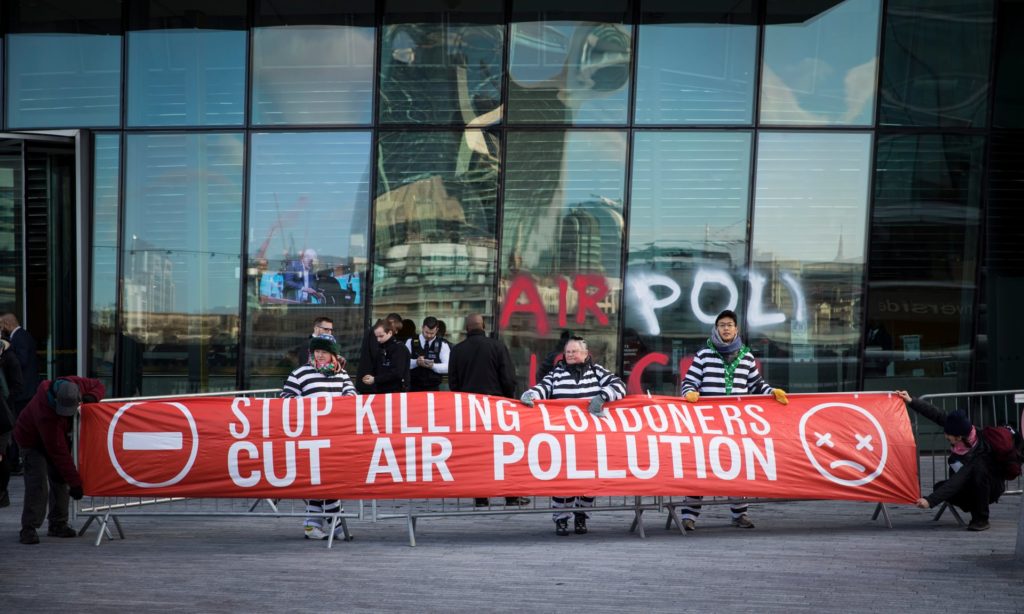
Roger also informs me of just how bad the situation is. The research, based on the latest updated London Atmospheric Emissions Inventory, shows that every area in the capital exceeds World Health Organisation (WHO) limits for a damaging type of particle known as PM2.5. It also found that 7.9 million Londoners – nearly 95% of the capital’s population – live in areas that exceed the limit by 50% or more. In central London the average annual levels are almost double the WHO limit of 10 µg/m3. Clinicians say that young people exposed to these toxic pollutants are more likely to grow up with reduced lung function and develop asthma.
So what are Roger & company up to? They aim to influence the London government to bring in more effective anti-air pollution laws and regulations in the coming months – at a time when they are still “consulting” on air pollution measures. This will be part of a more general campaign to build connections with local anti-air pollution campaigns around London and the broader environmental groups in the capital with a view to influencing central government and framing the campaign within the context of the systemic challenge of climate breakdown. We guerrilleros were both convinced of the need and immediately interested in supporting such a bold stand, so we quickly approved a grant to cover requisite materials and transportation costs of traveling activists. To make things easier administratively, channeled the grant via Rising Up, a registered UK nonprofit, with a bank account and it is the network which creates/hosts campaigns one of which is ‘Stop Killing Londoners’.
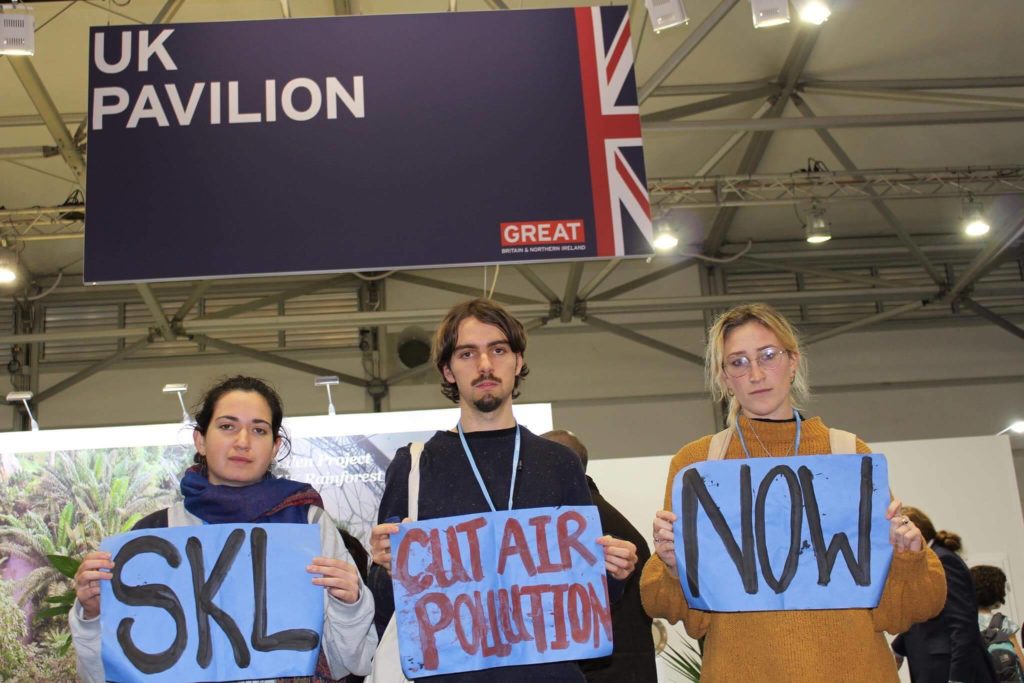
What this means in real terms on the ground, is doing 15 direct actions blocking roads in around 20 weeks – while most similar campaigns/NGOs do such actions once every few months if that. Why roadblocks? It is a type of civil disobedience that gets attention, both passersby, police and media. Furthermore, you are highlight congestion and the pollution problem directly with the car jam that is created. Additionally, you have a chance of getting arrested if you refuse to move when asked. Getting campaigners into prison at the height of a campaign iteration (for the first time for several decades in the UK) and finally breaking the UK activist taboo on going to prison and usher in the re-emergence of Gandhian nonviolent traditions. And they did just this. As a result of the prison tactic, getting on national TV news and London and national press this garnered widespread exposure for the campaign and reinforced its credibility. But this was not mere blind trouble-making. The activists knew their shit – they were extremely well versed in policy & had eloquently prepared suggestions for law-makers. They would quote that in the UK, Nottingham introduced an all-electric park-and-ride service and one of the biggest electric bus fleets in Europe, while Birmingham promotes a “bicycle revolution”, offering free bikes, cycle training and maintenance lessons. Moreover, they recommended a nationwide duty on all public bodies to take into account the impact of air pollution and climate change whenever they make a decision about public services or public funds. A precedent exists in the form of the public sector equality duty, which assesses whether the decisions of public bodies will have a discriminatory impact on vulnerable groups, and if so take reasonable steps to prevent discrimination. It is now embedded in almost every public body decision-making process.
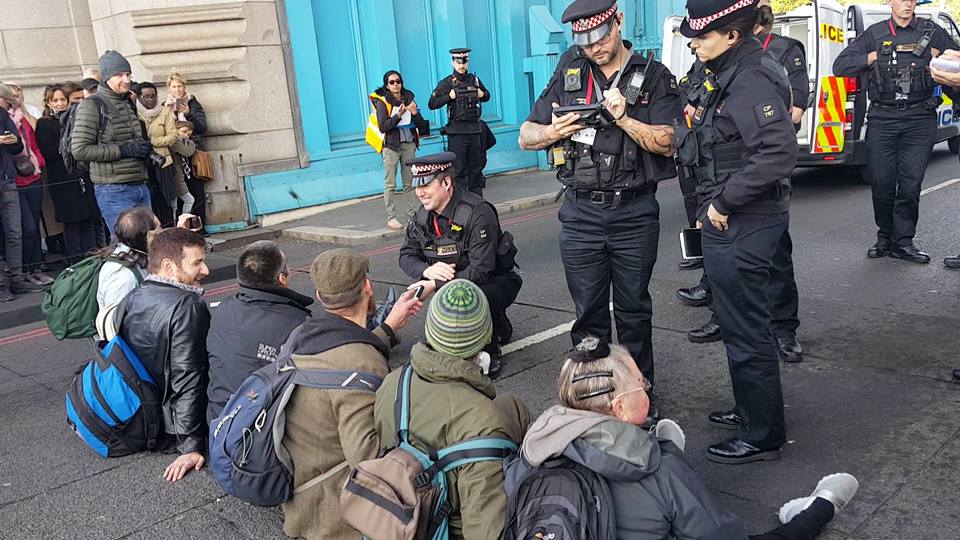
Of course, I had to join in fun myself during my stay in London and I went to join the roadblock discos with a group of friends. Here’s another key tactic that Roger holds in very high regard. Every protest needs to be fun and fabulous. Therefore, instead of just blocking car to cause a disruption, disco music was being blasted around Trafalgar Square, so that even if you are upset that some activists are causing a jam, you can only be so upset in the company of Donna Summer. Moreover, activists would run around apologising, smiling, offering people vegan cupcakes and giving them information leaflets to explain why it is that they are doing what seems merely like a odd and mildly irritating hippie situation. I can attest that the vibes truly were joyful, sincere and open-hearted. Roger has since been kept busy with the mobilisation against the new Heathrow Airport terminal, that he has written about and together with his crew is cooking up more climate justice actions in the capital as the ‘Stop Killing Londoners’ campaign evolves.
